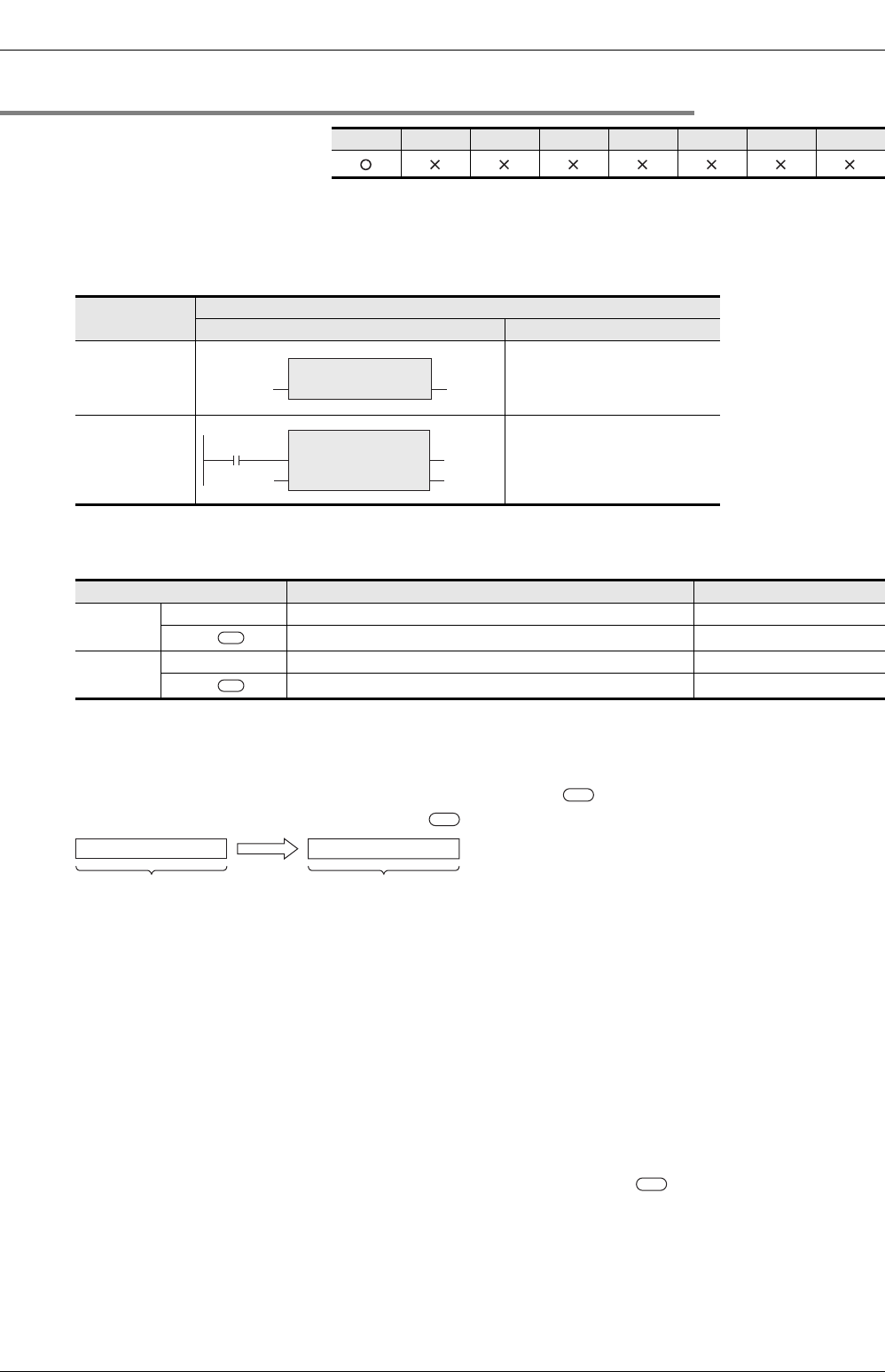
5 Applied Functions
5.1 Type Conversion Functions
128
FXCPU Structured Programming Manual
(Application Functions)
5.1.46 TIME_TO_STR(_E)
Outline
This function converts time data into string data, and outputs the data obtained by conversion.
1. Format
*1. Output variable
2. Set data
In explanation of functions, I/O variables inside ( ) are described.
Explanation of function and operation
This function converts time data stored in a device specified in into string data, and outputs the data
obtained by conversion to a device specified in .
Cautions
1) Use the function having "_E" in its name to connect a bus.
2) When handling 32-bit data in structured programs, you cannot specify 16-bit devices directly, different
from simple projects. Use labels when handling 32-bit data.
You can specify 32-bit counters directly, however, because they are 32-bit devices.
Use global labels when specifying labels.
Error
An operation error occurs in the following case. The error flag M8067 turns ON, and D8067 stores the error
code.
1) When the number of points occupied by the device specified in exceeds the range of the
corresponding device.
FX3U(C) FX3G FX2N(C) FX1N(C) FX1S
FX
U
/FX
2C
FX0N FX0(S)
Function name
Expression in each language
Structured ladder ST
TIME_TO_STR
TIME_TO_STR(_TIME);
Example:
Label 2:=
TIME_TO_STR(Label 1);
TIME_TO_STR_E
TIME_TO_STR_E(EN,_TIME,
Output label);
Example:
TIME_TO_STR_E(X000, Label 1,
Label 2);
Variable Description Data type
Input
variable
EN Execution condition Bit
_TIME ( )
Conversion source time data Time
Output
variable
ENO Execution status Bit
*1 ( )
String data after conversion String
TIME_TO_STR
_TIME *1
Label 1 Label 2
TIME_TO_STR_E
EN ENO
*1
Label 2
X000
Label 1
_TIME
s
d
s
d
"1234567"20m34s567ms
Time data String data
d


















